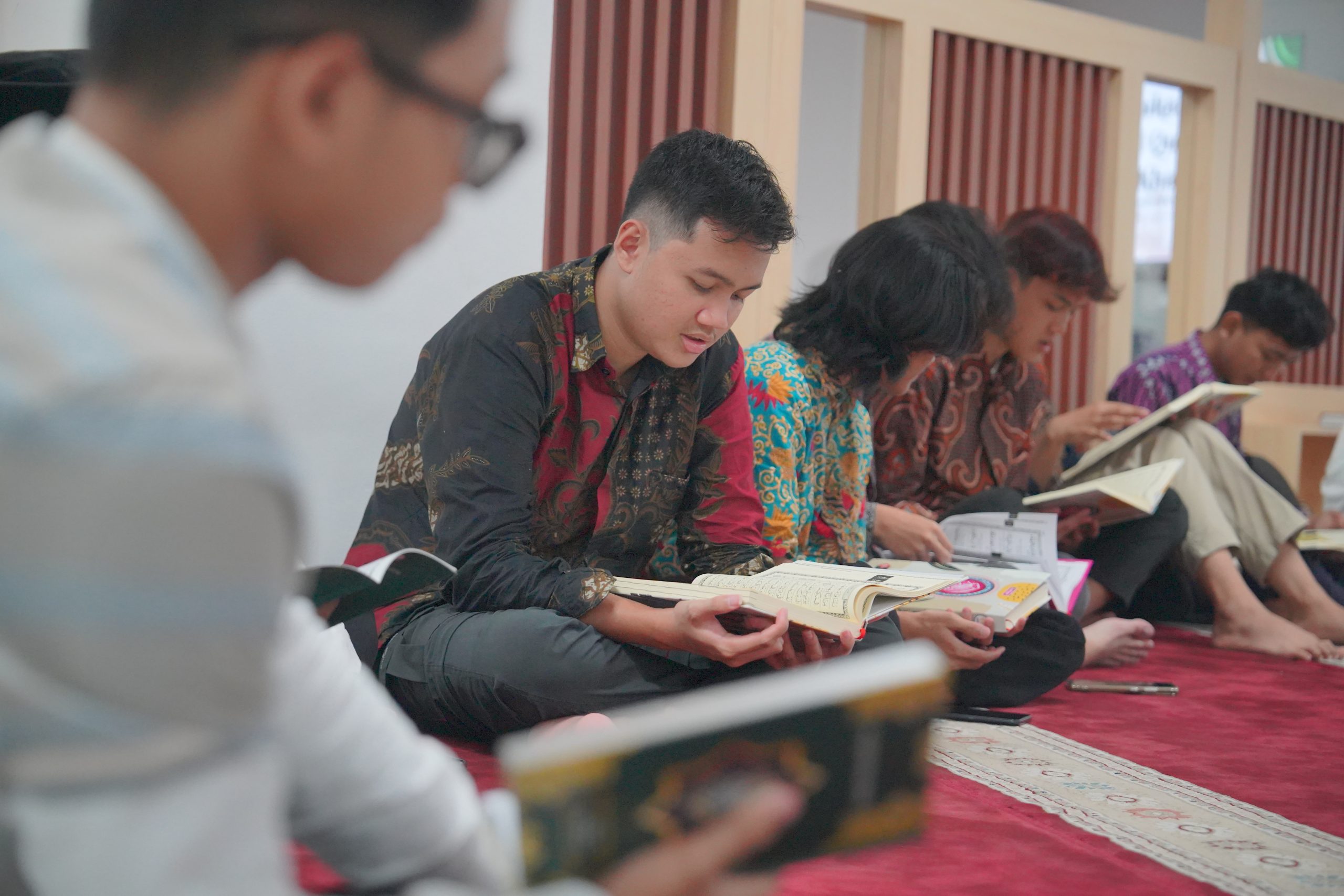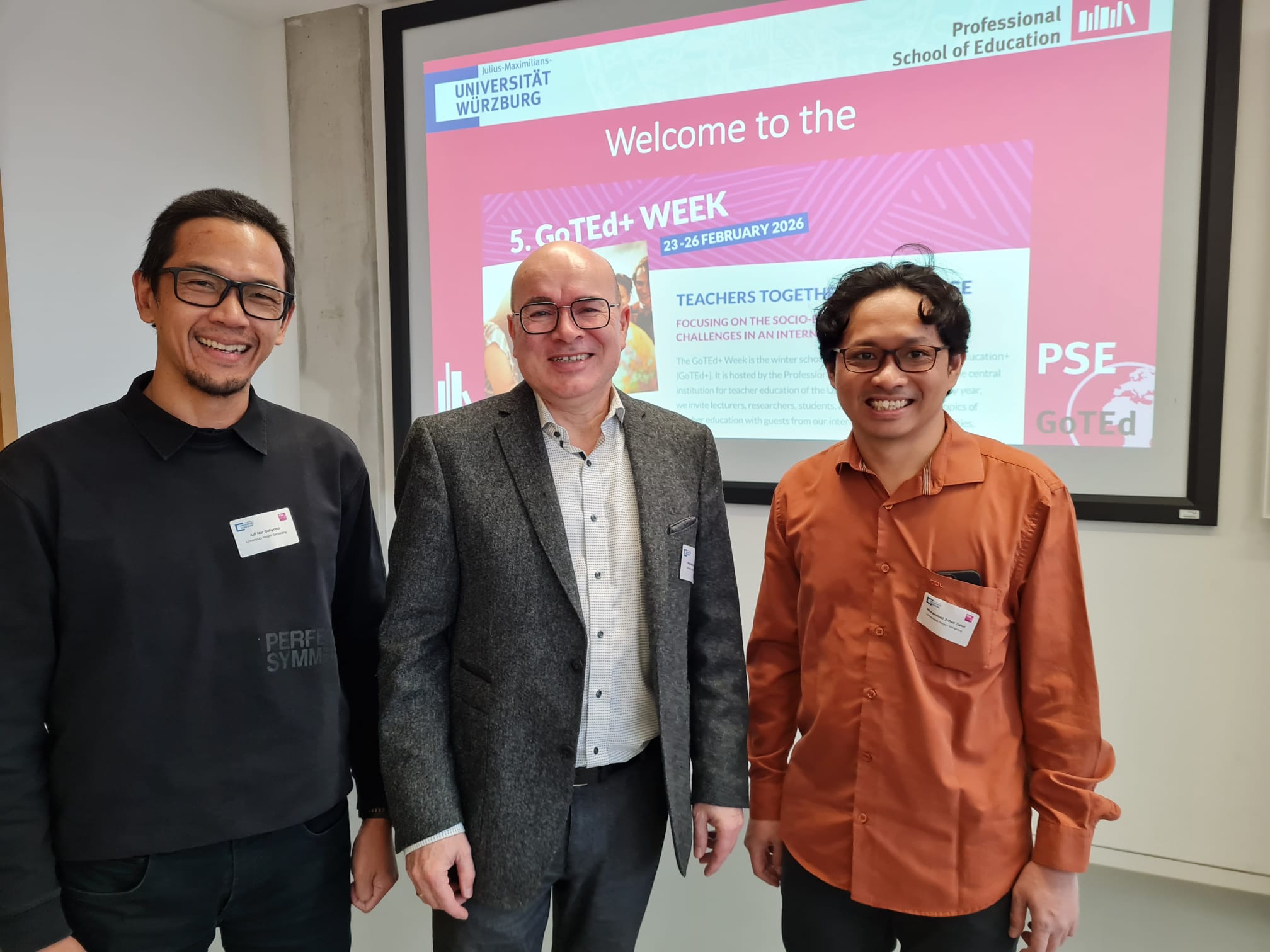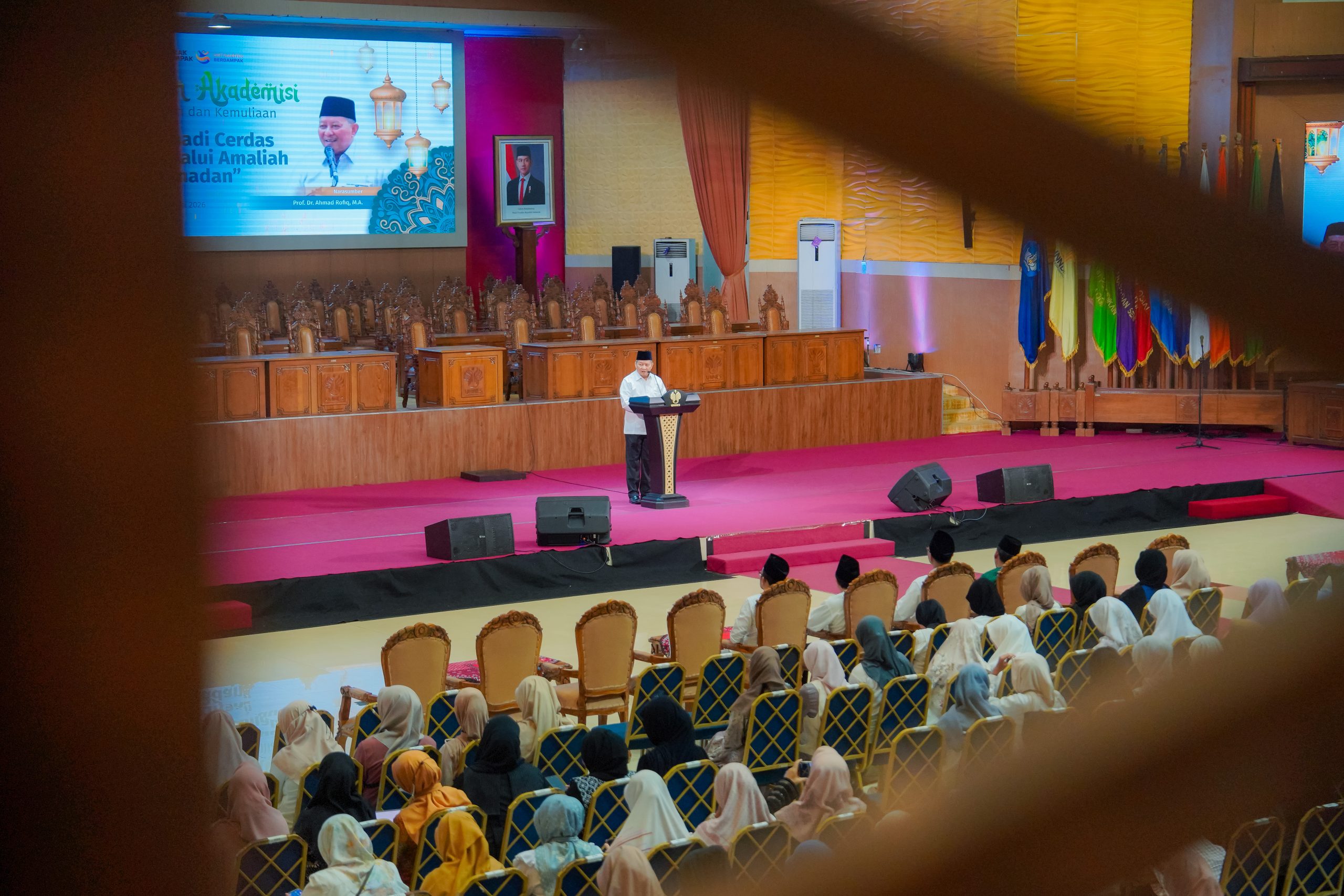Deputi Bidang Koordinasi Ekonomi Makro dan Keuangan (Deputi I) Kementerian Koordinator Bidang Perekonomian menyebut Ekonomi Global saat ini sedang menghadapi tantangan baru dan perubahan lanskap signifikan pasca pandemi Covid-19 yang menyebabkan kondisi Indonesia telah berubah sangat drastis akibat perkembangan teknologi digital, dan dipercepat oleh kondisi pandemi Covid-19.
Dalam kondisi seperti itulah, peran mahasiswa (Generasi Millenial dan Gen-Z) menjadi semakin penting dalam memberikan kontribusi melalui aspek digitalisasi.
“Penerapan aspek digital ini jelas menjadi tantangan sekaligus peluang bagi para mahasiswa dalam menghadapi tantangan baru”.
Hal itu disampaikan Dr Iskandar Simorangkir SE MA dalam Kuliah Umum yang diselenggarakan Pascasarjana Universitas Negeri Semarang yang mengusung tema besar “Tantangan Global bagi Pengembangan SDM dan Ekonomi Indonesia Masa dan PascaPandemi Covid-19” yang diselenggarakan secara Daring, Senin (25/10).
Dr Iskandar menambahkan, Mahasiswa yang menjadi bagian generasi Milenial dan Gen-Z berpotensi untuk berpartisipasi sebagai talenta dan pelaku usaha digital.
“Untuk itu saya mengajak mahasiswa pascasarjana UNNES untuk ikut berpartisipasi di dunia digital. Dengan struktur penduduk yang didominasi oleh penduduk milenial dan Gen Z maka berimplikasi pada karakter penduduk Indonesia di masa depan. Generasi milenial dan Genz memiliki karakter dan psikografi yang hampir sama dikenal dengan 3C yaitu Creative, Confident, dan Connected. Selain itu, ada lima karakter kerja yang penting generasi mileneal dan Genz untuk mendukung sukses nya pekerjaan yaitu kemampuan beradaptasi yang tinggi/fleksibel, kreatif, technology savvy, dan empati serta mampu berpikir kritis,” ucap Deputi Bidang Koordinasi Ekonomi Makro dan Keuangan Kementerian Koordinator Bidang Perekonomian tersebut.
Dr Iskandar menerangkan potensi Partisipasi Generasi Muda di era Digital yaitu Milenial dan Gen z Sebagai digital talenta, sebagai usaha pelaku usaha Digital, dan sebagai potensi pasar produk dalam negeri.
“Sebagai generasi “Digital Native” maka generasi ini didorong untuk menjadi talenta digital yang sesuai dengan kebutuhan industri di era digitalisasi. Dengan kemampuan beradaptasi yang tinggi generasi ini diharapkan mampu menjadi job creator. Generasi milenial dan Z merupakan pasar terbesar dan paling potensial di Indonesia, baik dari segi kuantitas maupun perilaku yang berbeda dengan segmentasi pasar lainnya. Generasi Z merupakan Konsumen berpotensi dalam negeri,” tutur nya.
Sementara itu, Wakil Rektor Bidang Akademik Prof Dr Zaenuri SE MSi Akt yang mewakili Rektor UNNES menyampaikan Revoluasi Industri 4.0 dan Society 5.0, Covid-19, Kebijakan Pemerintah, serta standar Mutu Hi Tech, Hi-Touch, dan Hi Trust menjadi tantangan perguruan tinggi untuk bisa memberikan lulusan yang berkualitas.
Untuk itu, kata Prof Zaenuri, UNNES mengharuskan dosen mempunyai kompetensi inti yang sesuai dengan dengan kebutuhan sekarang ini.
“Kompetensi inti keilmuan (Core Competencies) yang kuat harus dimiliki oleh setiap dosen yang ada di UNNES. Dosen harus mempunyai softskill dan kompetensi di abad 21 ini untuk memberikan peran kepada Indonesia,” jelas Prof Zaenuri.
Selain itu, Prof Zaenuri menyampaikan para lulusan UNNES dibekali dengan future skills untuk menghadapi industri 4.0 dan society 5.0.
“SDM unggul tidak hanya cukup dengan memperoleh gelar, tapi harus dibekali dengan keterampilan sosial, kompetensi berinteraksi, literasi baru, dan belajar sepanjang hayat,” terang nya.
Direktur Pascasarjana UNNES Prof Dr Agus Nuryatin MHum melaporkan kegiatan Kuliah Umum ini Dalam rangka mendukung Pengembangan SDM yang ada Indonesia dan sekaligus membuka wawasan serta pembekalan kepada para mahasiswa Pascasarjana UNNES untuk ikut memberikan kontribusi bagi ekonomi Indonesia.



